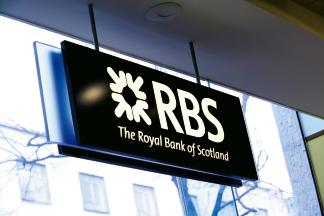

News
RBS: it may take a generation to overhaul existing banking cultures
The banking and finance industry has come under intense pressure since the financial crisis, after scandals and examples of bad practice emerged, but it could take a generation to overhaul the current culture and create a responsible banking system, the Royal Bank of Scotland (RBS) has said.
During a Webinar, Andrew Cave, head of sustainability at the bank, commented that the effects of the financial crisis, such as public distrust, are still rife in the industry in general and is something that could take many years to address.
The Global Consumer Banking Survey, published in March by accountancy firm EY, revealed that whilst consumer trust in the UK banking sector had stabilised, it still lags behind the rest of the world. In the UK, 37% of respondents said their trust in banks had declined in the last year, compared to 11% that said it had increased. Additionally, 15% said they had minimal or no trust in their main financial provider, double the levels seen in Germany, France and the US.
One of the main drivers behind the lack of trust were recent news articles, with banks hitting the headlines over benchmark manipulation, mis-selling and sales-driven cultures.
Embracing ethics and sustainability is key to changing perceptions, although Cave acknowledges that the definition of sustainability is broad and banks, including RBS, have a long way to go.
According to Edie, Cave said, “On a narrow measure of more traditional sustainability issues around environmental performance, we’ve made good progress […] but we are under no illusions, we’ve got a long road ahead of us.
“It may take a generation in banking to overhaul the existing cultures and to make sure we get the culture doing the right things everyday.”
However, he added that creating a more sustainable banking sector in the UK was difficult because the business model, which is based on offering free services in the form of current accounts, presents challenges.
Cave reportedly added, “Of course it can’t be free, there is always cost in the system and a model like that creates a range of challenges. When you have a whole sector where you have a difficult business model it drives a whole raft of sustainability challenges.”
Following the release of its Sustainability Review in April, RBS said it aims to lead ethical banking from the front but admitted that this could take up to five years
In an article for Blue & Green Tomorrow, Ryan Brightwell, researcher with BankTrack and founder of research consultancy Bright Analysis, looks at RBS’s ethical credentials and argues there is a “wide open space for a large commercial bank to become a leader on ethics”.
During a debate at this year’s Ecology Building Society annual general meeting, Anna Dart, a PhD researcher at Roehampton University, commented, that as a taxpayer owned bank, RBS was in an ideal position to set a better example in the financial industry.
Photo: Royal Bank of Scotland
Further reading:
Myth of sustainable investment performance sacrifice ’finally withering away’
Four banks accused of underpaying PPI compensation
Co-operative Bank customers to have their say on ethical banking policy






























